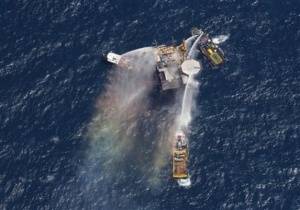US Gulf Coast relief as BP seals well

Tourism authorities on the Gulf Coast of America will begin the Herculean tasks of repairing public perceptions of the region today after BP announced it had permanently sealed the Macondo Well.
The well – which ruptured as the Deepwater Horizon rig blew up on April 20th, killing 11 workers – released 4.9 million barrels of oil into the Gulf of Mexico.
Officials have termed the event the worst oil spill in US history, with BP battling to quell the spill for many weeks.
A temporary cap had sealed the flow on July 15th while a relief well was dug.
That well finally linked up with the ruptured well late last week, allowing workers to start pumping in cement, removing the need for the cap and creating the permanent “kill”.
Coast Guard Adm Thad Allen, National Incident Commander of the Deepwater Horizon oil spill, confirmed the well was now “effectively dead”.
He added: “Additional regulatory steps will be undertaken but we can now state definitively that the Macondo Well poses no continuing threat to the Gulf of Mexico.”

President Obama visited the region to assess the damage
Response
President Obama hailed the news, vowing to continue to help those affected.
He had personally visited the region in August, taking his family swimming in the waters off the coast of Florida.
As the battle to repair the financial and ecological cost of the accident continues, United States authorities revealed the majority of the oil split had now broken up.
In a report issued in August, officials said three-quarters of the oil had been captured, burned off or had evaporated.

BP chief executive Tony Hayward was forced to step down following the accident
BP
The disaster cost BP chief executive Tony Hayward his job, while simultaneously wiping £45 billion from BP’s market value.
New drilling in the Gulf region has also been brought to a standstill.
As many 400 lawsuits are pending against BP, with the company establishing a £20 billion escrow fund to meet claims.
Followings its own investigation the oil giant said “no single factor” was responsibly for the disaster.
The report has been strongly criticised in some quarters.

